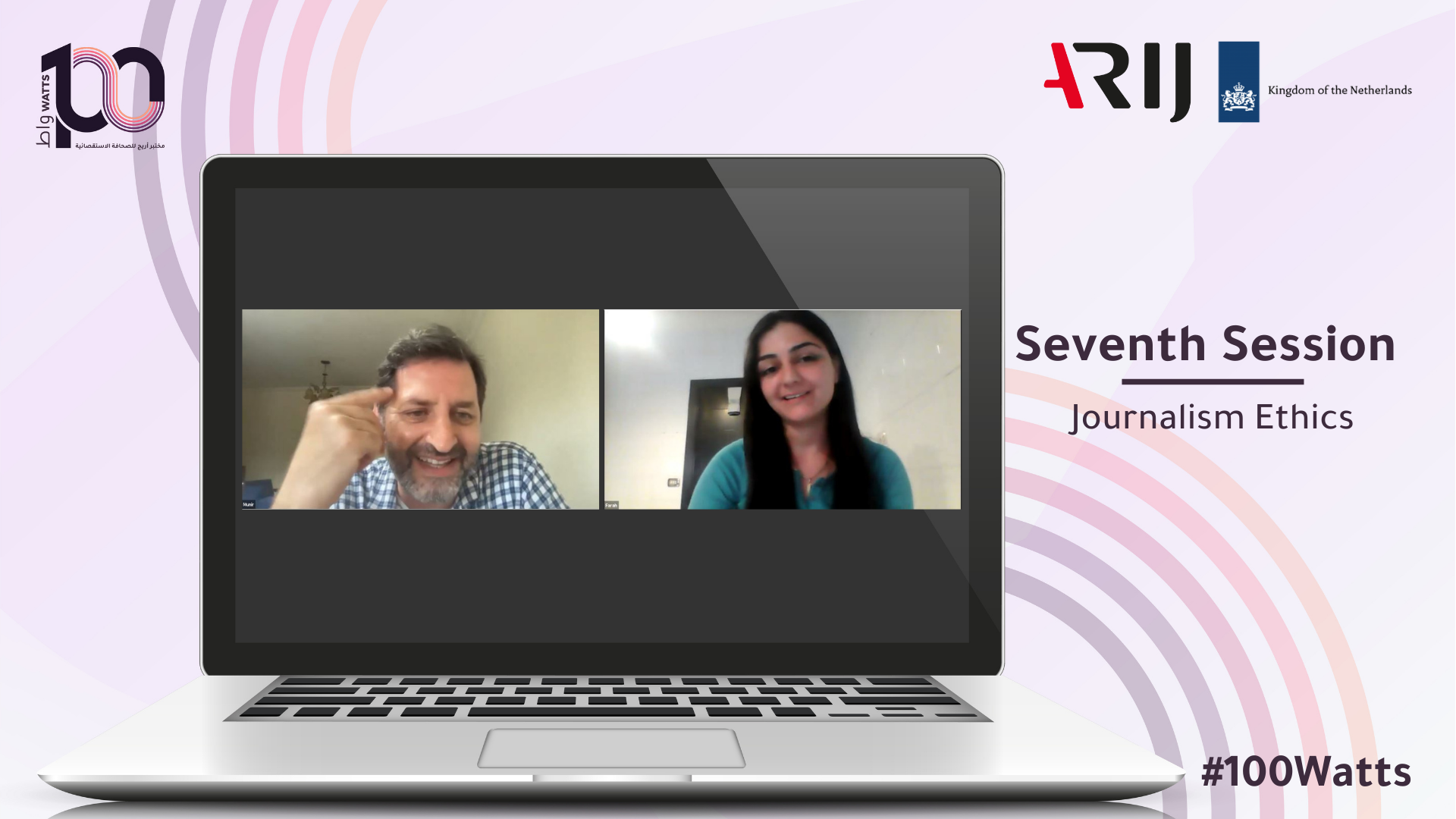Amman- 14 July 2021
The 7th webinar of the “100 Watts” project addressed journalism ethics and provided ethical guidelines for the production of media content.
“100 Watts” is a three-year project launched by ARIJ and supported by the Embassy of Netherlands in Jordan. The project aims at training more than 100 Journalists, content creators, journalism and media students, and professors on audio storytelling “Podcast”, to address vital societal issues in Jordan and promote accountability and reform.
The session, held on 14 July 2021, hosted ARIJ editor-in-chief, Munir Al-Khatib, and was co-moderated by “100 Watts” editorial producer, Farah Jallad, and ARIJ Journalist and trainer, Firas Taweel.
Al-Khatib started the session by talking about the history of journalism, and the development of its role over time, pointing out that journalism has become a fourth state by playing a major part in shaping public opinion, informing the public and revealing corruption. He noted that the primary obligation of ethical journalism is to serve the people and provide a platform for unheard voices, making it important for journalists to observe the highest degree of ethical standards.
Al Khatib highlighted some of the core principles of ethical journalism, such as: accuracy, fairness and objectivity, accountability, independence and Humanity. He noted that the media tend to place more emphasis on getting the scoop and argued that such practice jeopardizes the accuracy of information. ARIJ editor-in-chief emphasized the necessity of taking accountability for any errors in reporting and rectifying them. Al Khatib discussed the importance of objectivity and defined it as presenting issues and events in a neutral, unbiased manner. He also advised journalists to refuse gifts, special treatment or activities that compromise their integrity.
Al-Khatib then talked about journalist’s rights, which include: freedom of expression, independence, the right to access information, a clear contract, and sufficient training. He pointed out that it is the duty of the institutions they work with to ensure these rights are met.
During the discussion with the participants, ARIJ’s editor-in-chief indicated that laws and procedures often provide journalists with a greater scope of freedom of expression, and far less restrictions from the ones journalists impose on themselves out of fear.
At the end of the session, Al Khatib urged journalists to stand for the truth, respect individual’s privacy, protect their sources, avoid hatred speech, and promote peace. He also provided tips on how to create accurate and ethical media content.








